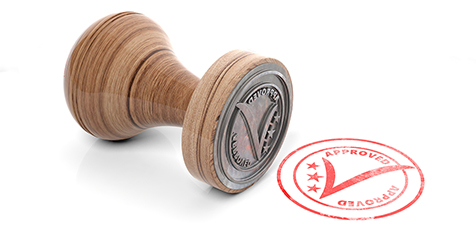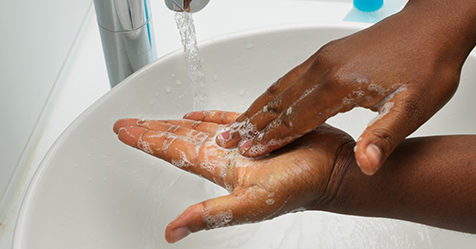New Cleaning Protocol Is Effective Against C. Diff Infections in Hospitals
Study finds touchless hydrogen peroxide disinfection systems reduce C. diff rates
Environmental services (EVS) staff are always striving to improve cleaning protocols to help reduce the instances of health care-associated infections (HAIs) in patients. A new study published in the American Journal of Infection Control found that adding aerosolized hydrogen peroxide (aHP) to hospital infection prevention protocols can reduce C. difficile (C. diff) infections (CDIs), one of the most common HAIs found in health care facilities.
CDIs cause approximately 223,000 HAIs resulting in more than 12,000 deaths and US$6.3 billion in costs in the United States annually, according to the U.S. Centers for Disease Control and Prevention (CDC). C. diff spores are easily spread through contact with hospital surfaces, including bed handrails, equipment controls, and doorknobs. The spores are resistant to hand sanitizers and most disinfectants. Hospitals require enhanced protocols for hand hygiene and environmental cleaning to prevent C. diff spread and infection, but even with consistent implementation of these measures, it is difficult to remove the pathogen from hospital surfaces.
Researchers analyzed CDI rates at a large, acute-care facility in Philadelphia over a 10-year period, to evaluate the effectiveness of touchless aHP disinfection systems. The systems generate an aerosolized dry-mist fog containing hydrogen peroxide to all exposed room surfaces to kill any C. diff spores that remain after physical cleaning.
The researchers compared the incidence of CDI at the facility before implementing the aHP system as well as after. Over a 27-month period prior to implementation of the system, the facility recorded 120 CDIs. Following implementation, the facility recorded 72 cases over a 33-month interval, reflecting a 41% decrease in the facility’s CDI rate—from 4.6 per 10,000 patient days to 2.7 per 10,000 patient days.
Over a five-year period of consistently using the aHP system, along with an environmental cleaning program, researchers observed a 74% reduction in hospital-onset CDIs. Between January 2015 and December 2019, CDI rates consistently decreased from 5.4 per 10,000 patient days to 1.4 per 10,000 patient days.
“Our study showed that persistence in utilizing an aerosolized hydrogen peroxide system had a significant impact on reducing C. difficile infections hospital-wide,” said Dr. Christopher L. Truitt of Wayland Baptist University of Planview, Texas, the study paper’s lead author.


